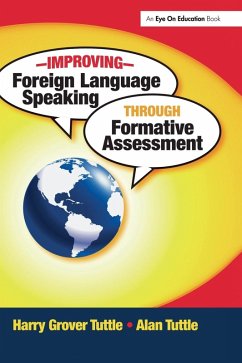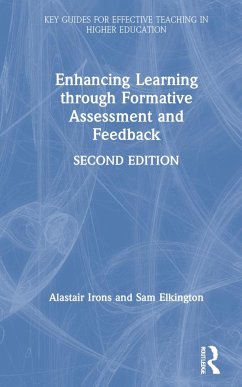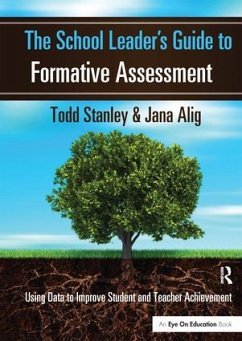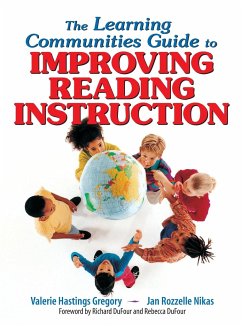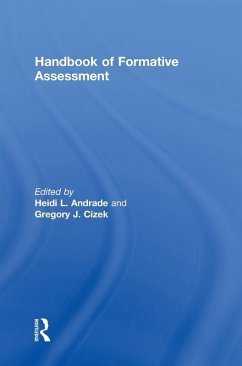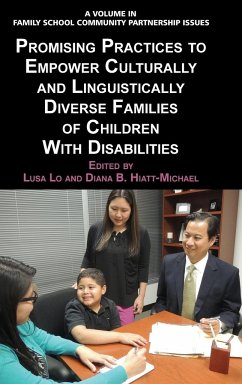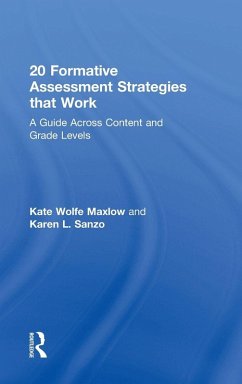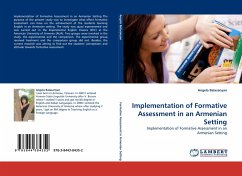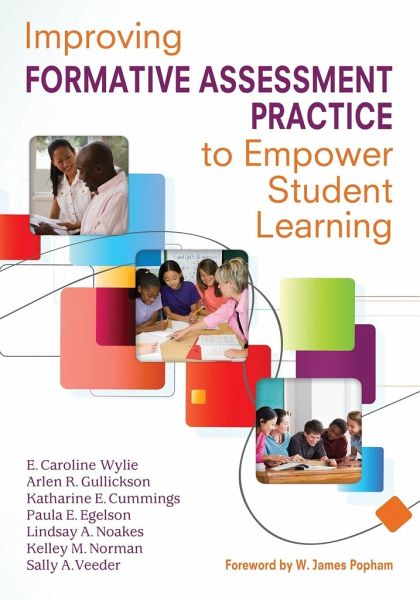
Improving Formative Assessment Practice to Empower Student Learning
Versandkostenfrei!
Versandfertig in 1-2 Wochen
34,99 €
inkl. MwSt.

PAYBACK Punkte
17 °P sammeln!
Supercharge your formative assessment skills and watch student learning soar! Teachers routinely ask and answer a series of three questions with and for students: Where are my students headed? Where are they right now? How can I close the gap between where they are and where I want them to be? This text suggests that teachers also ask these parallel questions of themselves: Where am I going? What can formative assessment practice look like? Where am I currently in my formative assessment practice? How do I close the gap? Readers are then encouraged to select a specific aspect of formative assessment to investigate, explore relevant personal practice relevant to that aspect, implement necessary changes, reflect on those changes, and continue the change process. This practical guide can be used by individual teachers or collaboratively as a study guide for a learning community. The authors describe an effective four-step process for improving teachers' formative assessment practices that provides opportunities to reflect, consider alternative instructional approaches, and apply what they have learned. Case studies provide examples of formative assessment in practice, along with examples of teacher-implemented changes. A companion website includes an array of tools and templates for organizing, gathering, and systematically using information to strengthen formative assessment skills. This practical guide can be used by individual teachers or collaboratively as a study guide for a learning community. Case studies provide examples of formative assessment in practice, along with examples of teachers implementing changes in their practice. A companion website includes an array of tools and templates for organizing, gathering, and systematically using information to strengthen formative assessment skills.
Supercharge your formative assessment skills and watch student learning soar! The authors describe an effective four-step process for improving teachers’ formative assessment practices that provides opportunities to reflect, consider alternative instructional approaches, and apply what they have learned. The text suggests that teachers ask themselves the same questions they ask students: Where am I going? What can formative assessment practice look like? Where am I currently in my formative assessment practice? How do I close the gap? Included are case studies, examples of formative assessment in practice, and a companion website with tools and templates.




